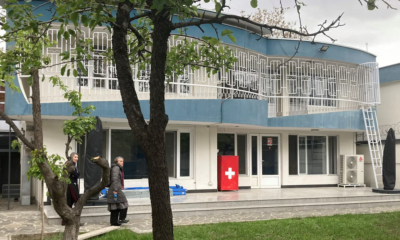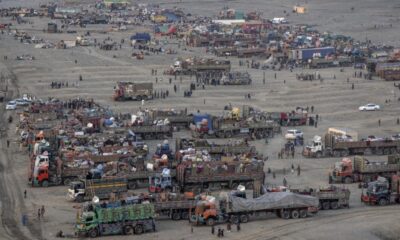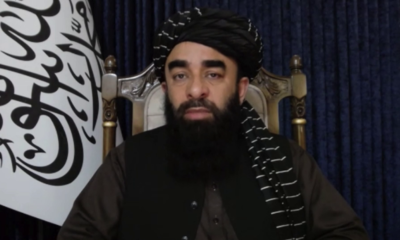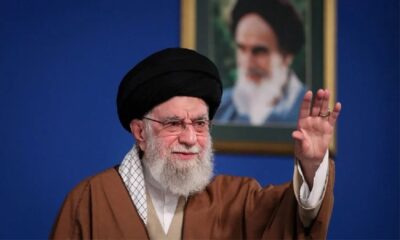Latest News
Ulema Council established over Takhar provincial government
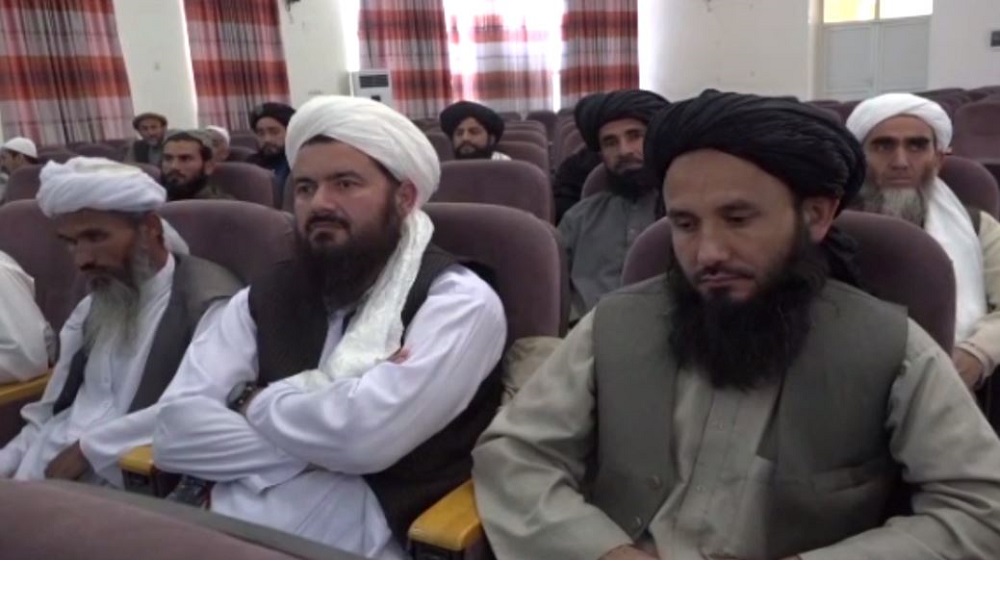
According to the order of the Supreme Leader of the Islamic Emirate of Afghanistan (IEA), the Ulema Council in Takhar province started work on Sunday.
This council is made up of fifteen religious scholars and five elders of the province and its chairman, who have direct contact with the IEA’s Supreme leader Haibatullah Akhundzada.
The council has the right to oversee the functioning of the local government and also advise officials on how to improve governance.
During his visit to Takhar, the Deputy Minister of Interior Mawlavi Noor Jalal Jalali announced that Mawlavi Mohammad Murad is the chairman of the council and that Mawlavi Hayatullah is the deputy chair of the new Council of Religious Scholars in the province.
According to him, this council was formed by the order of the Supreme Leader of the Islamic Emirate.
“The Ulema Council is higher than the Provincial Council of the Republic regime. The Provincial Council was not so competent in cases. The chairman of this council has direct contact with the supreme leader,” he said.
The leadership of the council said that they will focus on strengthening good governance and improve the people’s relations with government, as well as monitor the actions of the local government.
“This is a heavy burden and responsibility, and it is too heavy to handle such a task that a successful person can do,” said Mawlavi Mohammad Murad, head of the Ulema Council.
“Whatever incident the nation complains about, we will report it to the government or any incident that takes place in the administration, and if clients and people complain, we will immediately share it with the governor of the province and work according to the duties submitted by the Supreme leader,” said Makhdoom Hayatullah Raiq, deputy head of the Ulema Council.
The Ulema Council is to be established in all provinces of the country and the councils will also be tasked to handle legal disputes.
Latest News
Switzerland re-establishes presence in Kabul with humanitarian office
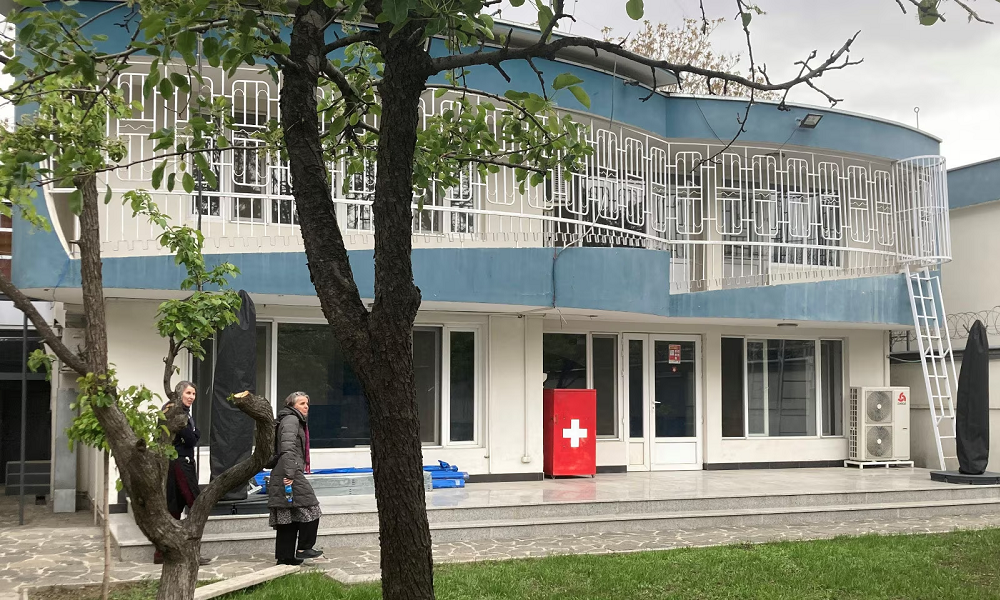
Switzerland’s foreign ministry announced on Monday it re-established its presence in Kabul by opening a humanitarian office to assist Afghanistan’s most vulnerable populations.
The ministry said in a statement that with 24 million people in Afghanistan relying on humanitarian aid and most of the population living below the poverty line, the office aims to provide critical support.
Four specialists from the Swiss Humanitarian Aid Unit (SHA), along with ten local employees, are now working on the ground. Their efforts are focused on ensuring that vulnerable communities receive the necessary resources to meet their basic needs, helping to alleviate the ongoing humanitarian crisis in the country, the statement read.
Since the IEA’s takeover in August 2021, Switzerland closed its cooperation office in Kabul and evacuated all its staff.
According to the statement, initially, the SDC team responsible for Afghanistan continued its programmes from Bern. Since February 2023, it has been operating from the Pakistani capital Islamabad and conducting regular visits to Kabul in order to continue the SDC’s programmes for Afghanistan.
This was a much-needed move in order to better respond to the needs of vulnerable communities in Afghanistan, according to the SDC’s deputy director general and head of its Humanitarian Aid Division, Dominik Stillhart.
Effective support for vulnerable communities requires direct dialogue with the people, efficient coordination between the aid organizations on the ground and a comprehensive understanding of the situation. This applies to all crisis areas where humanitarian aid is needed, not just Afghanistan. SHA members must be in a position to provide a flexible and rapid response to local people’s needs. This can only be achieved with a field presence, said Eric Marclay, who heads the office in Kabul.
Latest News
Pakistan plans to expel 3 million Afghan refugees this year
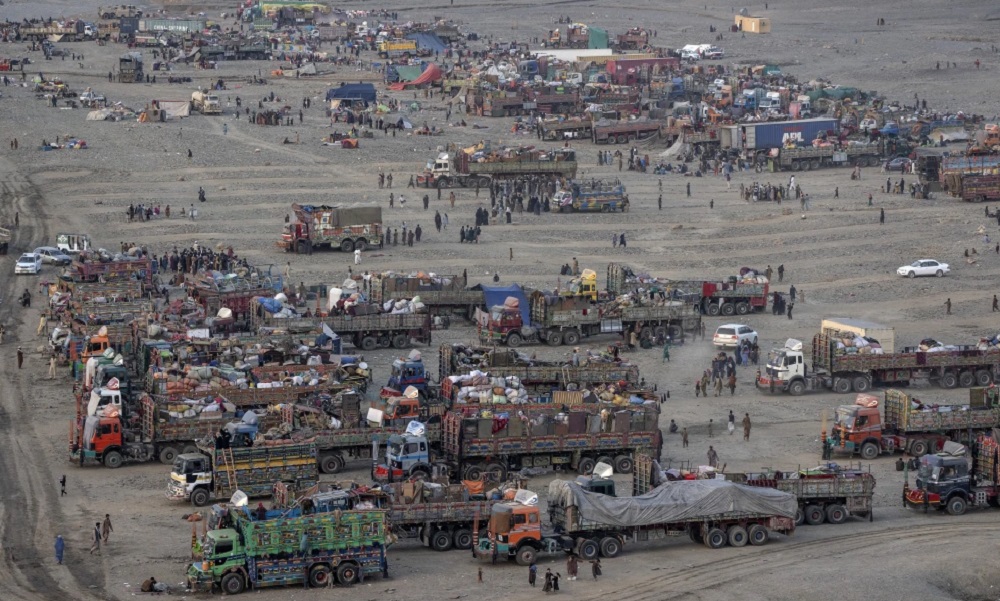
Pakistan plans to expel 3 million Afghans from the country this year, as a deadline for them to voluntarily leave the capital and surrounding areas expired on Monday, The Associated Press reported.
It’s the latest phase of a nationwide crackdown launched in October 2023 to expel foreigners living in Pakistan illegally, mostly Afghans. The campaign has drawn fire from rights groups, the Islamic Emirate, and the U.N.
Arrests and deportations were due to begin April 1 but were pushed back to April 10 because of the Eid al-Fitr holidays marking the end of Ramadan.
About 845,000 Afghans have left Pakistan over the past 18 months, figures from the International Organization for Migration show.
Pakistan says 3 million Afghans remain. Of these, 1,344,584 hold Proof of Registration cards, while 807,402 have Afghan Citizen Cards. There are a further 1 million Afghans who are in the country illegally because they have no paperwork.
Pakistan said it will make sure that Afghans do not return once deported.
Authorities wanted Afghan Citizen cardholders to leave the capital Islamabad and Rawalpindi city by March 31 and return to Afghanistan voluntarily or be deported.
Latest News
Some countries preventing Afghanistan from gaining its seat at UN: Mujahid

The Islamic Emirate’s spokesperson Zabihullah Mujahid says some Western countries, including the US, are preventing Afghanistan from gaining its seat at the United Nations.
Mujahid added that the US and its allies hold significant influence over the policies of the UN, and due to their defeat in the Afghanistan war, they are attempting to continue wartime policies.
“Some countries that fought against the Afghans for twenty years still have not changed their wartime policies and continue along the same path, which naturally has its effects,” said Mujahid.
He emphasized that the Afghan people have the right to secure this seat, and the IEA will continue to work to obtain it.
He also rejected the notion of Afghanistan being isolated, stating that despite Western pressures, the acting government has expanded its diplomatic relations with regional and global countries.
He stated: “Afghanistan is not isolated; every country naturally faces some challenges with others, but we have extensive regional and international engagements.”
However, experts believe that the UN will not grant Afghanistan’s seat to the IEA until they take concrete steps to meet the international community’s preconditions, such as establishing an inclusive government, ensuring human rights—especially women’s and minority rights—and effectively combating terrorism and narcotics, to satisfy the world.
Despite over three and a half years since the IEA’s takeover, no country has officially recognized the regime.
Meanwhile, many countries have engaged with the IEA and established good diplomatic relations with the caretaker government, which the IEA believes serves as a form of recognition of Afghanistan’s current government.
-

 Latest News5 days ago
Latest News5 days agoAmnesty international urges Pakistan to halt Afghan deportations
-

 Latest News4 days ago
Latest News4 days agoAfghanistan-Iran-Europe railway corridor activated
-

 Business4 days ago
Business4 days agoAfghanistan ships first consignment to Europe via Khaf-Herat railway
-

 Business3 days ago
Business3 days ago36 mining contracts inked over the past year: Mines ministry
-
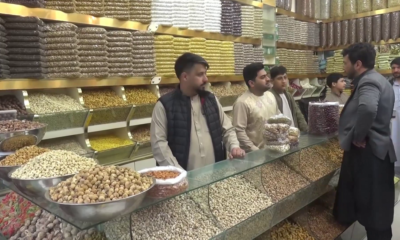
 Latest News3 days ago
Latest News3 days agoDried fruit market in Herat booms ahead of Eid-al-Fitr
-

 Sport5 days ago
Sport5 days agoDe Kock fireworks see Kolkata thrash Rajasthan in IPL
-

 Regional4 days ago
Regional4 days agoPowerful quake in Southeast Asia kills several, Myanmar declares state of emergency
-

 Latest News4 days ago
Latest News4 days agoUS may ask for military equipment left behind in Afghanistan: Trump


